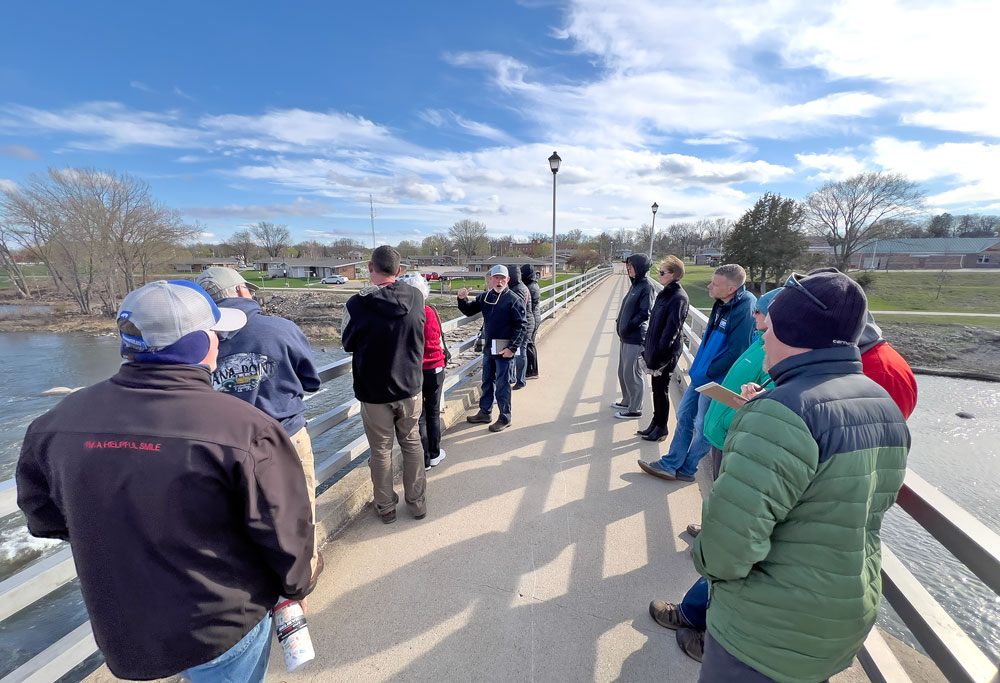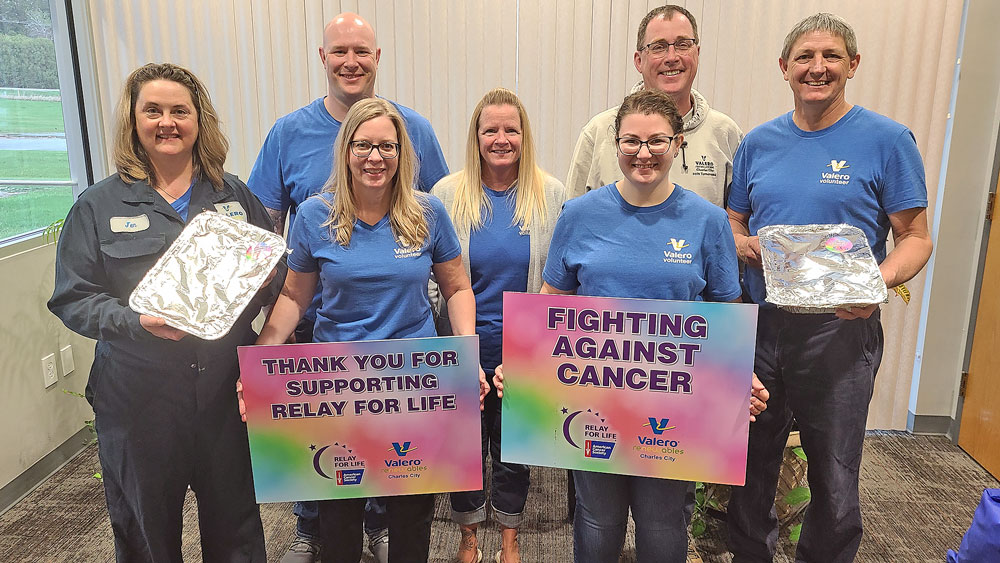Floyd County Supervisors get look at possible EMS levy recommendation
By Bob Steenson, bsteenson@charlescitypress.com
The Floyd County Board of Supervisors got its first official look this week at a potential tax asking to support emergency medical services in the county.
Most of the information presented had been reported before in the Press, and one of the supervisors, Roy Schwickerath, is a member of the groups coming up with the recommendation, but the board’s regular meeting this week was the first chance to officially react as a board to the numbers presented and to ask questions.
Patrick Lumley, a Charles City Council member and the chair of the Floyd County Emergency Medical Services Advisory Council, had presented the latest information being considered by the advisory council. Since then, that group decided on its official recommendation at a meeting held Thursday evening and Lumley will present that to the supervisors next week. (See story on this page.)
The supervisors will likely discuss the recommendation at their meeting next Monday, and make a decision at that meeting or on the following Monday, Aug. 29, whether to put a question about an EMS tax on the Nov. 8 general election ballot.
The advisory council will recommend the supervisors ask voters to approve an EMS levy to collect up to $556,000 per year for 10 years. The money would be used to support countywide ambulance service, probably at least initially through another contract with American Medical Response (AMR) the current service provider, and through other county ambulance and first responder groups.
Included in the $556,000 per year could be $424,000 for countywide ambulance service, $22,000 annually for the Marble Rock Fire/Rescue first responders; $40,000 annually for the Nora Springs Ambulance, and $50,000 annually for the Greene Ambulance Service for calls in Floyd County, although supervisors would have the final say on how the money is allocated.
If approved by at least 60% of voters in the November election, the Board of Supervisors would decide each year how much money to collect up to the maximum approved, and how to spend the money, including how much to give those or any other groups its decides on.
Schwickerath said at the supervisors meeting Monday that the advisory groups had received information from the attorney that both the city and county use for bonding and other financial matters that the tax question on the ballot would be an “up to” amount, with the actual figure decided annually by the supervisors. Schwickerath said Randy Tilton, the assistant county attorney, agreed with that interpretation of the new EMS “essential services” state law that was passed last year.
The proposed tax levy could collect an amount above what the county and city are currently spending to support ambulance services, and would provide more support for other ambulance and first responder services in the county, as well as support for the Floyd County EMS Association for training and education.
Lumley said one of the issues the advisory council spent a good deal of time considering was the issue of sustainability — the ability of EMS services to attract and keep personnel necessary to do the job, as well as keeping up with other costs such as supplies, equipment and training.
Some of the smaller EMS services such as Marble Rock and Nora Springs have significant concerns over their ability to replace big-ticket items like vehicles when it becomes necessary to do so, he said.
Supervisor Linda Tjaden said she shares the concern over sustainability, and has heard that concern “through all 99 counties.”
“When they’re dealing with trying to come up with their EMS services, the people – are they qualified, are they volunteer? It’s going to be an ongoing issue and I think that’s something we have to recognize,” she said.
Supervisor Doug Kamm said, “I think this discussion is going on in every rural county in Iowa. The urban ones don’t seem to have that problem – there’s some competition there, but no matter who you talk to it’s the topic right now.”
Tjaden said it’s similar to the vote a few years ago to change the charter of the Floyd County Medical Center so that organization’s board of trustees could levy a tax to support the facility. That vote passed by a more than 2-to-1 margin.
“You know nobody wanted to lose the hospital,” Tjaden said. “Well, nobody wants to be out there – and I hear it from the citizens in the rural area especially – we do not want to be without an ambulance. I know this is very important to everybody.”
Lumley said another objective of the advisory council – if the supervisors decide to take the levy question to a public vote – will be to help organize the informational campaign that will be needed to precede the vote.
“If the Floyd County Board of Supervisors elects to proceed and go forward and place this on the November ballot, due to the very short turnaround time, the council would be working essentially overtime to develop and execute a strategic communication plan,” he said, adding that it would be similar to what the city and the county did to inform potential voters about renewing the Local Option Sales Tax last year.
Tjaden said, “I agree that when you move forward communication is key. … Do whatever you can to get out there with every organization. You’ve just got to get out and communicate as much as you possibly can, because you need to make sure that everybody fully understands.”
Also at the supervisors meeting this week, the board:
- Directed County Engineer Jacob Page to work with the county’s drainage engineering firm to come up with permit requirements for Navigator pipeline access through drainage districts.
- Agreed to let Page advertise to fill an assistant to the county engineer position.
- Discussed the hiring process to find a new county emergency management and safety coordinator to replace Drew Mitchell, who announced his resignation.







Social Share